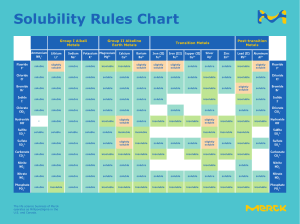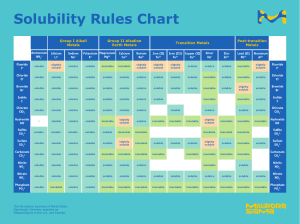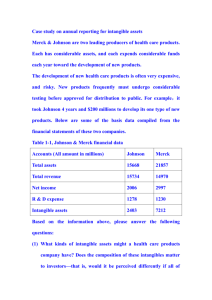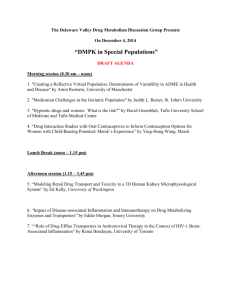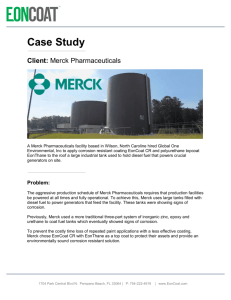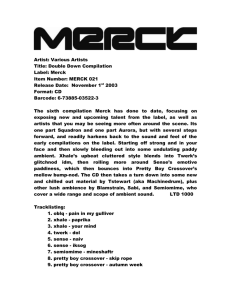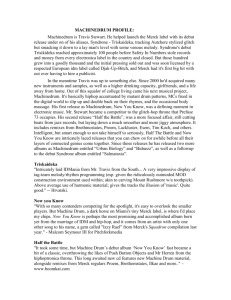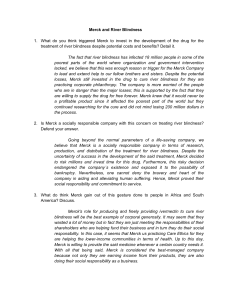Busn641HrmWkMerckCaseStudy2A2 (5) - Glenice Booker
advertisement
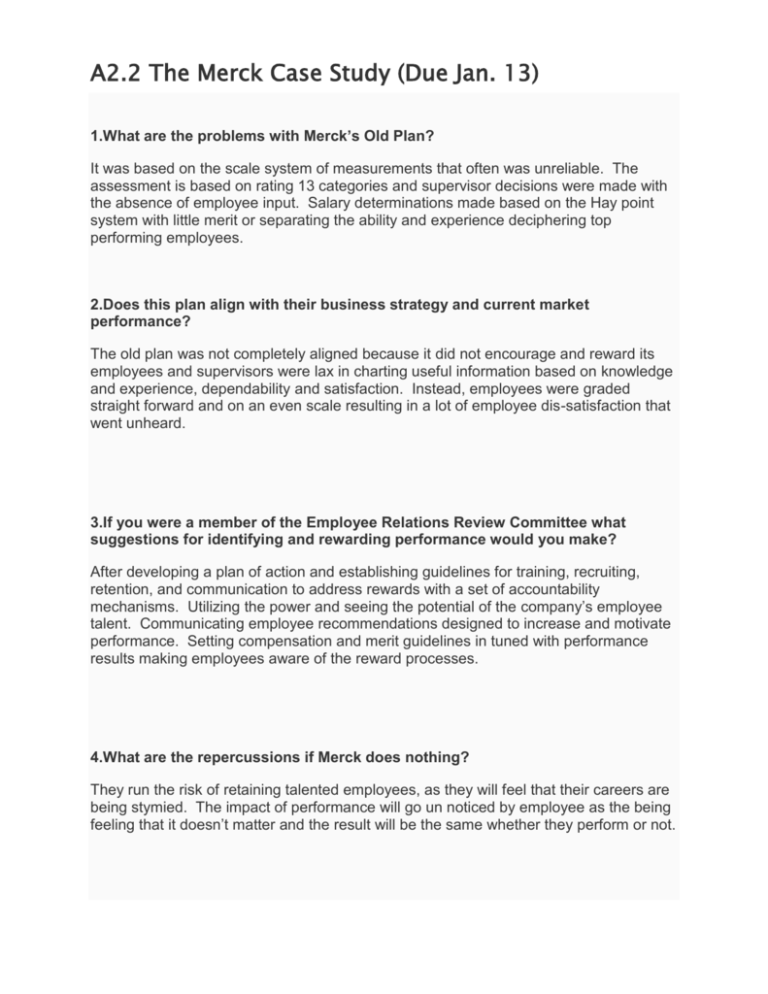
A2.2 The Merck Case Study (Due Jan. 13) 1.What are the problems with Merck’s Old Plan? It was based on the scale system of measurements that often was unreliable. The assessment is based on rating 13 categories and supervisor decisions were made with the absence of employee input. Salary determinations made based on the Hay point system with little merit or separating the ability and experience deciphering top performing employees. 2.Does this plan align with their business strategy and current market performance? The old plan was not completely aligned because it did not encourage and reward its employees and supervisors were lax in charting useful information based on knowledge and experience, dependability and satisfaction. Instead, employees were graded straight forward and on an even scale resulting in a lot of employee dis-satisfaction that went unheard. 3.If you were a member of the Employee Relations Review Committee what suggestions for identifying and rewarding performance would you make? After developing a plan of action and establishing guidelines for training, recruiting, retention, and communication to address rewards with a set of accountability mechanisms. Utilizing the power and seeing the potential of the company’s employee talent. Communicating employee recommendations designed to increase and motivate performance. Setting compensation and merit guidelines in tuned with performance results making employees aware of the reward processes. 4.What are the repercussions if Merck does nothing? They run the risk of retaining talented employees, as they will feel that their careers are being stymied. The impact of performance will go un noticed by employee as the being feeling that it doesn’t matter and the result will be the same whether they perform or not. 5.Why do managers prefer to assign uniform ratings to employees regardless of performance? They do not have to justify differences and cast eyes on the non-performers. Top management will recognize only that they provided and presented a performance appraisal, without singling out or separating top performer with minimal promotional rewards. 6.What has your experience with performance appraisals been (as an employee, a manager, or both)?Does your organization have a best practice you would like to share? When looking at personal involvement as an employee I preferred the double accountability process where I was allowed input and an opportunity to discuss and sight difference in the overall assessment. I do not feel direct supervisors are always privy to or on-top of what all an employee brings to the table or their attitude regarding how they set out to get the assigned job done or what the job entails. On the manager side I believe that you want to remove unfairness and doubt that you are giving the earned credit due the employee respectfully make them aware of needed improvement and as well as opportunities available to them without bias. Salary and compensation should be evaluated and discussed along with the method used to determine be it by percentage or companywide caps.
